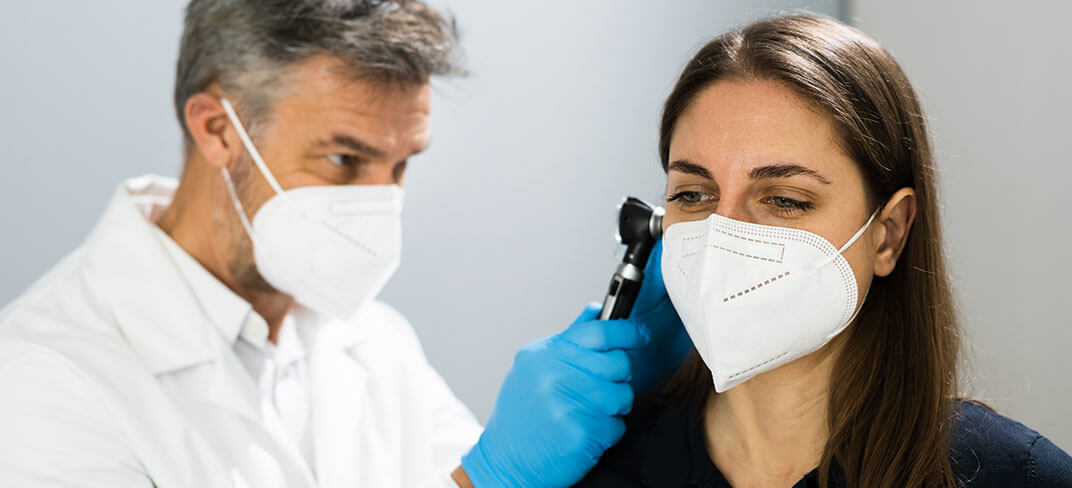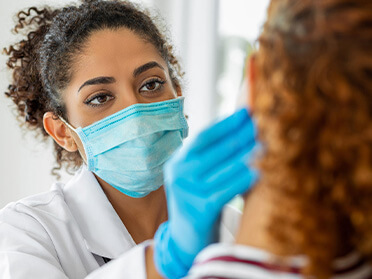
Otolaryngology (Ear, Nose, and Throat) at UPMC
At UPMC, our ENT doctors are available to people suffering from head and neck disorders. In particular, our specialists deal with the diagnosis and treatment, also surgical, of ENT issues and diseases. Care is offered to both adults and children.
The expertise of our team covers various medical sub-specialties, using advanced instrumentation to identify the underlying causes of diseases, and ensuring a prompt diagnosis for specific conditions.
Make an ENT appointment today
UPMC offers the expertise of leading ENT specialists at:
Conditions We Treat
Our ENT specialists treat a wide range of conditions, including:
- Tinnitus.
- Adenoiditis, pharyngitis, and tonsillitis.
- Rhinitis and sinusitis.
- Snoring and sleep apnea.
- Nasal septal deviation.
- Epistaxis.
- Sinonasal polyposis.
- Sinonasal tumors.
- Inflammations and diseases of the outer and middle ear.
- Peripheral vertiginous syndromes.
- Transmissive and sensorineural deafness.
- Voice and swallowing disorders (phoniatry, vocal, clinical, and artistic rehabilitation).
- Salivary gland diseases.
- Cervical swelling and adenopathies.
- Inflammations and tumors of the oral cavity, pharynx, and larynx.
- Functional and organic dysphonias.
- Otolaryngological manifestations of inflammatory and infectious systemic diseases.
- Head and neck cancer.
ENT Services at UPMC
Diagnostics and consults
We offer a wide range of advanced medical tests and diagnostic services to diagnosis the specific conditions of our patients. Our careful diagnostic assessment is the basis of a personalized intervention strategies tailored to individual needs. With state-of-the-art technology and a team of highly qualified specialists, we are committed to providing an accurate and detailed diagnosis, offering targeted interventions that can significantly improve the quality of life of our patients. We are committed to overcoming the challenges of ENT conditions, ensuring a complete and personalized approach to our patients.
Ear, Nose, and Throat (ENT) Surgery
ENT surgery focuses on the treatment of diseases and conditions affecting the ear, nose, throat, and head and neck. ENT surgery includes a wide range of interventions aimed at treating hearing, breathing, voice, and swallowing disorders. Our ENT specialists, also known as otolaryngologists, use advanced surgical approaches to diagnose and treat a variety of conditions, including ear infections, sinusitis, nasal polyps, voice disorders, sleep apnea, and head and neck cancer. ENT plays a crucial role in improving the quality of life of patients by treating airway and sensory function disorders in this complex anatomical area.
Who can benefit from our ENT services?
Our ENT services are available to those suffering from symptoms related to ear, nose, and throat conditions. If you are suffering from an oncology disease, our specialists will offer you the most suitable treatment.

We offer medical services and services on a private basis or in agreement with the main insurance companies. Some of our services are also affiliated with the National Health System.
For more information on active agreements, visit:
